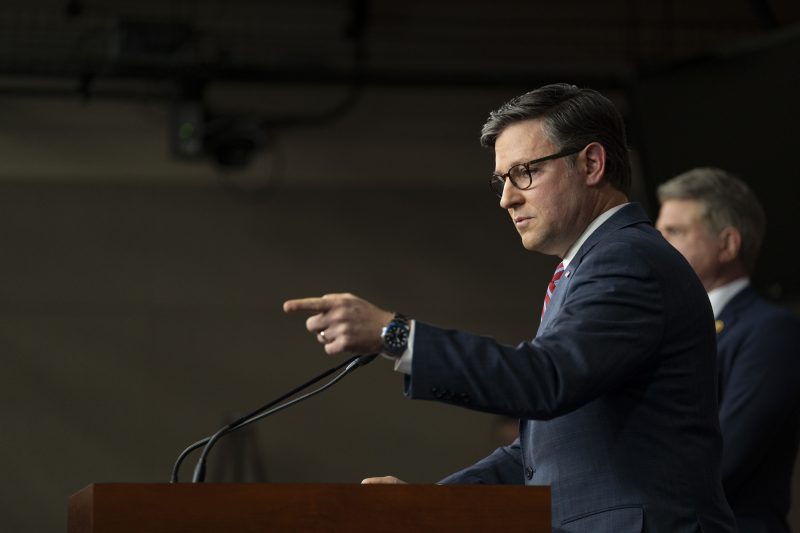
The Unbelievable Struggle: House Republicans’ Inability to Get Government Funding Sorted
House Republicans have been facing challenges in managing to fund the government. The ongoing struggle between the Democrats and Republicans has resulted in multiple government shutdowns and funding lapses. While the issue of government funding seems straightforward on the surface, the underlying dynamics reveal a complex interplay of politics, ideology, and public perception.
One of the primary reasons House Republicans have failed to fund the government stems from their reluctance to compromise with their Democratic counterparts. In a deeply polarized political climate, the two parties have struggled to find common ground on key issues such as budget allocations, leading to continued stalemates and funding crises. The lack of bipartisanship and negotiation has hampered the House Republicans’ ability to pass crucial funding bills in a timely manner.
Moreover, the influence of special interest groups and lobbyists has further complicated the funding process for House Republicans. Pressure from various interest groups, ranging from defense contractors to healthcare providers, has often influenced lawmakers’ decisions on budget allocations and funding priorities. The presence of these powerful interest groups has sometimes led House Republicans to prioritize their interests over the broader public good, resulting in funding impasses and partisan gridlock.
Another significant factor contributing to the challenges faced by House Republicans in funding the government is the growing emphasis on ideological purity within the party. The rise of the Tea Party movement and other conservative factions has pushed House Republicans further to the right, making it difficult for moderate voices to advocate for pragmatic solutions to funding issues. The ideological rigidity within the party has often alienated potential allies across the aisle and within the Republican caucus, undermining efforts to pass comprehensive funding bills.
Furthermore, the public perception of government funding battles has also played a crucial role in shaping House Republicans’ approach to funding the government. Media coverage of government shutdowns and funding lapses has often portrayed House Republicans as obstructionist and unwilling to compromise, damaging their credibility with the public. The negative public perception surrounding funding crises has put additional pressure on House Republicans to find lasting solutions to funding challenges and avoid further government shutdowns.
In conclusion, the challenges faced by House Republicans in managing to fund the government are multifaceted and reflect the broader political dynamics at play in Washington, D.C. From a lack of bipartisanship and compromise to the influence of special interest groups and ideological divisions within the party, House Republicans must navigate a complex landscape to effectively fund the government. Addressing these challenges will require a renewed commitment to bipartisanship, a willingness to prioritize the public good over narrow interests, and a concerted effort to rebuild trust with the American people. Only by overcoming these hurdles can House Republicans hope to break the cycle of funding crises and provide stable, effective governance for the nation.
